- Home
- MaryJanice Davidson
Deja Who Page 2
Deja Who Read online
Page 2
Who are you to talk, sunshine? You see yourself and all your past mistakes and has it made you happy or well-adjusted or pleasant to be around?
Ah . . . no.
Leah double-checked the feed and hummed. She did this more or less unconsciously; she scarcely heard it anymore, though colleagues occasionally teased her about it. It had a tendency to soothe her patients. And herself, of course. If she didn’t hum, she might stab.
“Who are you?”
“Alice . . . hmmmm . . . mmmm . . . my name . . . my name is . . .”
“Who are you?”
“My name is James Clark McReynolds.”
Excellent. Leah crimped the tube. Past memories would come easier now; Rain Down (generic name: reindyne, courtesy of the good people at Pfizer, discovered by accident in 1987 when Pfizer was trying to develop a heart medicine/diet aid) was invaluable for that, possibly more invaluable than Leah or any of her colleagues. But if she kept the IV running wide open, Alice/James/etc. would fall so far down the rabbit hole they’d never make it back.
“My name is James Clark McReynolds.”
“There you go.”
“What?”
“Nothing, Judge McReynolds.” Leah flipped through the chart. DOB February 3, 1862. DOD August 24, 1946. Aquarius, a masculine sign. A fixed sign, with keywords like “stubborn,” “sarcastic,” “rebellious.” American lawyer and, later, judge. Possibly the most vile wretch to ever sit on a Supreme Court bench.
Even by the standards of the time, Judge McReynolds was a gold-plated jerkass, foisted on the unwary by President Taft, and what the hell had el presidente been thinking? Thanks to history’s long memory, and her job, Leah knew exactly: Taft was thinking what he was saying, and what he was saying was McReynolds had been “someone who seems to delight in making others uncomfortable.” Wasn’t that a terrific quality for any judge to have? Why, it ought to be a mandate! Oh, and lest he hadn’t been clear, Taft also described McReynolds as “selfish to the last degree . . . fuller of prejudice than any man I have ever known . . . he has no sense of duty.”
So naturally, the politicians of the time were in full agreement: Hire that man! And keep promoting him. Eventually promote him just to get rid of him. Promote him again. And again. Eventually give him a lifetime appointment to the highest court in the land. Because in politics, shit flows uphill.
Leah was not surprised to find she was not surprised. Her research—hours and hours looking up birth and death certificates, hours on the online juggernaut that was the Insighter database—helped her figure out who Alice was, and who Alice had been. Chart #6116 was leaking McReynolds all over the place. And that wasn’t even the bad news. She had the same thought about almost every patient: if only they’d come to see me sooner. Before she did things she can never undo.
Well. She
(they)
were here now. Leah would help as best she could. Of course, her idea of help and her patient’s idea of help were likely different.
“. . . the only way you can get on the Supreme Court these days is to be either the son of a criminal or a Jew, or both!” #6116 was ranting in a shrill old man’s voice.
Be glad you didn’t live to see the twenty-first century, McReynolds. African-Americans in Congress, the House, the White House, and the Supreme Court. Jews roam freely, secure in the absurd notion that religion doesn’t have to dictate career paths. Lesbians brazenly being lesbians. Homosexual couples marrying! And then adopting! Legally!
She swallowed her snicker. “Further, Judge McReynolds.” Leah checked the IV crimp. “Go back further. There’s all kinds of stuff in there. You have to dig for it.”
Her voice changed at once; no hesitation, Rain Down was working nicely and #6116 was deep in EffRe (Effortless Recall). #6116 went from a self-confident young woman to a shrill old man to . . . “My name is Westley Allan Dodd.”
There you go. I cannot tell you how much meeting a serial killer before lunch brightens my Wednesdays.
“Mm-hmm. Tell me all about yourself, Mr. Dodd. This is your chance to be heard.” The thing they all needed. The thing they would kill to get. If she were nicer, she would be sympathetic.
She wasn’t nicer.
Leah skipped past the McReynolds section of the chart. Westley Allan Dodd. DOB July 3, 1961, DOD January 5, 1993. Cancer. An astrological sign of contradictions, as keywords were “loyalty,” “oversensitivity,” “caring,” “self-pitying,” “dependable,” “self-absorbed.” Convicted serial killer and child molester. His execution was the first legal hanging, at his own request, since 1965.
The manner of his death was the least unique thing about him. He also claimed a stress-free, happy childhood of wealth and leisure and his first victims were his cousins, because all ordinary children with happy lives molested their cousins and then went on to rape, torture, and kill other children. “Dear Mom and Dad, happy eighteenth birthday to me. Thanks so much for a carefree childhood and instilling appropriate values in me and protecting me from all trauma, but now I’m going to be a sociopath, for funzies. Thanks again!” wrote no well-adjusted teenager ever.
Dodd’s first victims: cousins. All victims: below the age of twelve. Number of victims: over fifty. Attitude toward children in ten words or less: “I’m only nice to the ones I want sex from.”
“. . . told them, I said if I escaped I’d immediately go back to killing and raping kids—”
“They should have taken you at your word, Mr. Dodd. Further now. What is your name?”
“My name is Nathaniel Gordon.”
“You bet it is.” DOB 1834; historical records do not recount exact DOB. But they sure as hell paid attention to his death: May 8, 1862. Nat Gordon, the last pirate ever hanged, and the only slave trader ever tried, convicted, and executed for stealing one thousand slaves. “Real” piracy was punishable by death, but it was hardly ever enforced when the plunder was merely people with dark skin. The paperwork alone hardly made it worth it.
Of the one thousand slaves Gordon stole, 172 were men and 162 were women. According to John Spears, author of The Slave Trade in America, “Gordon was one of those infamous characters who preferred to carry children because they could not rise up to avenge his cruelties.” Nice.
Hilariously (to Leah, at least; she knew her job had turned her into a jerk extraordinaire and that people were right to avoid her at parties), Gordon tried to kill himself the night before his execution. The local authorities found that annoying, especially since it meant postponing Gordon’s execution from noon to 2:30 so the guy could recover enough to be murdered by the state. Leah wondered just how that went down: “He was definitely too sick at noon, but now that it’s 2:30 he hasn’t barfed in over an hour and can walk under his own power.” “Great! Let’s go kill him. Good news, Mr. Gordon, you’re well enough to execute.” Or, as Leah preferred to think of it, the classic “well, sir, we have good news and bad news” scenario.
He left behind a mother, wife, and son, but Judge Shipman (a man who almost a century earlier was a hundred times the “justice” McReynolds was) commented on Gordon’s real legacy: “Think of the cruelty and wickedness of seizing nearly a thousand fellow beings, who never did you harm, and thrusting them beneath the decks of a small ship, beneath a burning tropical sun, to die in of disease or suffocation, or be transported to distant lands, and be consigned, they and their posterity, to a fate far more cruel than death.”
“. . . family to support,” Gordon was whining from the plush couch. “How can it be a hanging crime to move property?”
So! A pirate, a serial killer, and the worst bigot the Supreme Court had ever seen. And Leah was trapped in a room with all of them. All right, “trapped” was inaccurate, since she had obtained patient consent, drugged #6116, and called all her shadows forward.
Wednesdays!
TWO
“So what was it?”
>
“Wrong question,” she told Chart #6116. “‘Who was it?’ would be more accurate.”
Chart #6116 rolled her eyes. “I never bought into that past lives crap. It’s just one more thing to blame your problems on. I mean—I believe it,” she added when Leah raised her eyebrows. “I’m not one of those weirdos who say there’s no such thing as past lives, that we’re just here for one lifetime and then go to heaven or hell or wherever.”
Ah, the afterlife. You don’t have to learn anything in your single solitary lifetime, and then you can live in the sky forever after! Unless you live in a lake of fire beneath the earth forever after. Well, there were stranger theories. Tabula rasa, for one. The goal of goals, an ideal so unlikely as to be mostly unattainable.
What would it be like, born with a clean slate? Nothing to make up for? Nothing to relive or regret? It was such an amazing concept Leah couldn’t grasp it. Like trying to explain the science of reproduction to a preschooler: “He does what? And then what happens?”
“It does seem to defeat the purpose of living,” Leah put forth with care, shaking off the daydream. “No point in trying to learn from your mistakes since this is your only chance to get it right . . . it calls a lot into question.”
“Exactly. I’m not a Denier. But I’m in control of this life. Whoever I was before, they had their time. Now it’s my turn.”
“That mind-set can work,” Leah said carefully, “sometimes.” It depended on who the person used to be. And what that person used to do. If in her past lives #6116 was, say, a humanitarian who mentored needy children in her spare time, then sure. Except . . . “About seventy percent of the populace can remember some or all of their past lives. But it’s fragmented, they get flashes. Or they remember it all but they don’t feel it.” One of her patients had explained it as being akin to watching a movie. You might care about the characters on the screen, but no matter how the events unfold, it doesn’t affect the viewer on a personal level. “Or, in your case—”
#6116 shuddered. “Nightmares. But they never bothered me before.”
You weren’t escalating before. “Sometimes a traumatic event will change how a person perceives their past lives.”
“Why are you talking like you’re narrating a documentary? I know all this.”
Leah ignored the bluster. It was barely possible the woman would hear what she was really trying to say. “I’ve had patients who didn’t have any sense of who they used to be, but then a loved one dies, or they survive a violent trauma—assault, rape—and suddenly they’re flooded with images of who they used to be.”
Then there were the others, the last group, the smallest percentage. About 5 percent of the population not only remember their past lives perfectly, and feel them on an emotional level, they are able to help others access their past selves. And to this day, scientists were still arguing about why.
Once upon a time, Insighters were routinely burned alive, thought to be in league with Satan. These days, nobody burned and Insighters were only in league with whatever HMO covered their patient. The meds helped, too, of course.
“Well, none of that stuff applies to me. I was getting along just fine and then I started having nightmares where I was the judge and the defendant. We even had the same terrible hairstyle!”
“Traumatic,” Leah replied, and managed to keep a straight face.
“You don’t know the half of it. And then I dreamed I was on a cruise. Well, a slave ship. But it was like a cruise, because I was white, so I didn’t have to row or anything, y’know? Food sucked, though. I kept waking up hungry. And seasick.” #6116 made a shooing motion, waving off nightmare-induced motion sickness. “So the meds worked. Right? I mean, obviously, you’ve got that ‘I’ve got a secret’ expression all you Insighters are terrible at hiding.”
“Not all of us,” Leah mumbled. She made a mental note to work on hiding her expressions better. Just because she was jaded didn’t make it right to be lazy, too.
“I always thought it was kind of a joke. Medication + Insighter = hello, memories! But I could almost feel you digging around in my brain. Peeking. Spying.” Leah made no comment, just let the silence stretch out. A pity #6116 was only interesting when she allowed her paranoia to show.
“Peeking and spying,” she replied. “Yes, that’s about right.”
“What’s wrong with me?”
What isn’t wrong with you?
Don’t worry, #6116. You’re in good (bad?) company; there’s plenty wrong with me, too.
Insighters had come along, evolutionarily speaking, shortly after man took up hobbies like cave painting and wearing the fur of the animals they clubbed to death. They weren’t always called Insighters, but at least they weren’t alone in that the names of their persecutors changed, too.
From shamans to witches (the Salem witch trials were a particularly bad time to be an Insighter), from pagans to Christians, from water dowsers to spiritual mediums, rhabdomancy to haruspices, and today Insighters. Tomorrow, Leah thought with morbid humor, “those weirdos who knew everyone’s past life before we killed ’em all.”
Though they were accepted (with reservations) as essential medical personnel, her kind had rarely had it easy. People who knew things they shouldn’t have always, always been feared. Leah could remember researching as a teenager, shivering at how in the twelfth and thirteenth centuries, not only was it legal to kill an Insighter, there was a strict protocol to be observed: Pluck out the eyes first. Burn the rest. Bury the ashes. Salt the earth the ashes were in.
And never speak of this again. Can I get an amen, brothers and sisters?
Today it was about clean offices and HMO plans, receptionists and patient referrals. Once upon a time it had been the ducking stool and hot pincers; the modern version (paperwork!) was almost as bad. It was always unpleasant, but at least Insighting was no longer an automatic death sentence.
Unless, of course, you were the late, somewhat lamented Ginny Devon, formerly of Portland, Maine, now embarked on her fourth life, hopefully. Ginny Devon had been less than two years out of graduate school (doctoral thesis: “A Child Shall Lead Them: Children’s Insights from Arthur Flowerdew to Shanti Devi”) when she was murdered by a patient’s disgruntled husband, a serial cheater who didn’t appreciate being told he’d once been Henry VIII.
He had waited for her to leave the office, smashed her car window with a recoilless hammer, used a water gun filled with gasoline to drench her face and hair, then tossed a match and settled down to await arrest. He explained to the arresting officers that yon crispy critter had no right to snoop through his past, and certainly no right no discuss it with his wife, who was in the middle of scoring half of his net worth, thanks to, as he described it, a “fireproof prenup” (he was apparently unaware of the dreadful irony).
He had explained to the grand jury that his wife had been out of line to hire someone to snoop through his past lives, like a PI who didn’t have to go through legal channels to dig. They had indicted him by one vote. He then explained his thoughts on snoopy Insighters to another jury, which, to the surprise of no one (but to the resigned alarm of Insighters the world over), came back hung. He had been convicted the second time and the judge had passed a wrist slap: ten years, including time served. Out in six. Extenuating circumstances. Temporary insanity. Only dangerous to snoopy Insighters, not the world at large.
Leah was probably safe from Chart #6116 but it wouldn’t do to take that for granted. The lady in question had by now swung her legs over the couch, sat up, and puffed a hank of hay-colored hair out of her eyes.
Leah thought, not for the first time or the twentieth, that evil hid beautifully. Because Chart #6116, Alice Delaney, was gorgeous: tall and shapely, generous in the hip and bust, shoulder-length curls she could not stop touching, freckles, big blue eyes, and skin the envy of an Irish milkmaid. Quite bright, too: IQ 139. The best schools. The best fo
od. The best homes. Chart #6116 was in her prime, and knew it, and took pride in knowing it, and looking it. “Is that why I’m having nightmares all the time? Because of who I used to be? How come not before? I’m not a kid anymore, f’God’s sake; isn’t this stuff supposed to pop up in your childhood?”
“Usually,” Leah admitted. “But as we discussed, major life changes can bring past issues to the surface.”
Her patient waved that away with a long-fingered hand that was beautifully manicured. “Nothing like that’s happened to me. So why now?”
“Because now you’re afraid of going to jail,” Leah replied, smiling. “You’re wiggling like a beetle on a needle to get out of it, and I’m the ace you preemptively tucked up your sleeve.” And if I had a dime for every time I met a patient this way, I would have three dollars and thirty cents.
“What?”
“As I said. You’re afraid of getting caught.”
Leah waited, betting on I don’t know what you’re talking about or a variation on the how dare you! theme.
“I don’t know what you’re talking about.”
“Not bad. Not especially imaginative, but not bad.”
“What?”
“You despise children. They’re too noisy, they refuse to sit still, they never do as they’re told. Or they will, but only after they’ve been cajoled a dozen times. Their parents are lax, you are essentially surrounded by brats.”
“None of that’s against the law.”
“No, it’s simply how you justified your crimes. You’d take their toys, their silly treasures. Useless things that the children would miss. You liked knowing they looked everywhere. You loved it when they cried. Somewhere in your house you have a sizeable stash of worthless junk that you gloat over.”
“That’s not—”
“The stealing escalated to assault.” She didn’t need the chart, which she closed and set on the low table to her left. “You’d catch them, slap them. Push them, kick them. Never in your own neighborhood, of course. You’d drab yourself down as much as you could bear—unflattering ponytails, I would guess, or wigs. Ugly clothing that hid your figure. Padding to make you look puffier than you are.

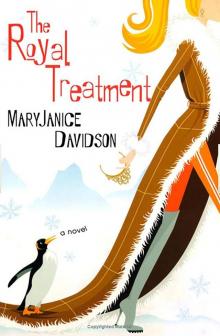 The Royal Treatment
The Royal Treatment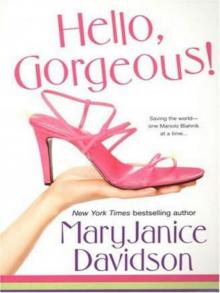 Hello, Gorgeous!
Hello, Gorgeous!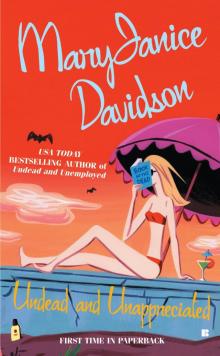 Undead and Unwed
Undead and Unwed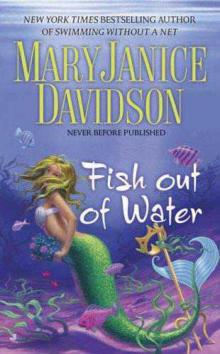 Fish Out of Water
Fish Out of Water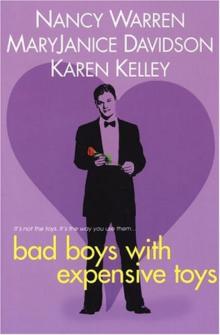 The World Is Too Darned Big
The World Is Too Darned Big Loves Prisoner
Loves Prisoner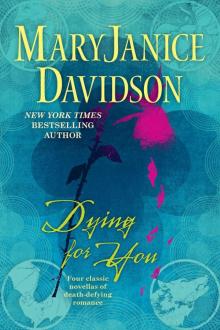 Dying for You
Dying for You Love Lies
Love Lies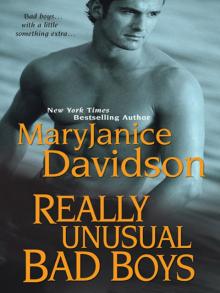 Really Unusual Bad Boys
Really Unusual Bad Boys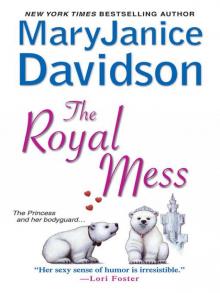 The Royal Mess
The Royal Mess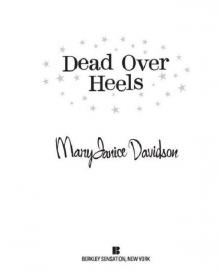 Dead Over Heels
Dead Over Heels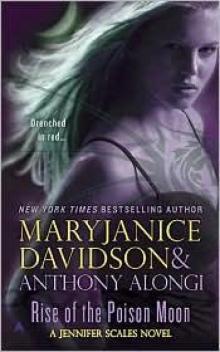 Rise of the Poison Moon
Rise of the Poison Moon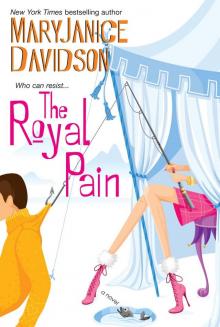 The Royal Pain
The Royal Pain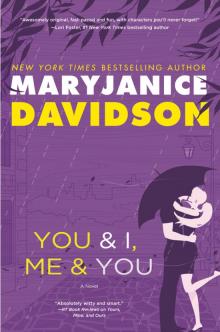 You and I, Me and You
You and I, Me and You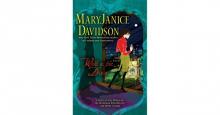 Jareds Wolf
Jareds Wolf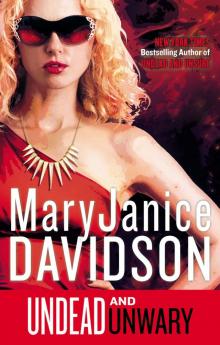 Undead and Unwary
Undead and Unwary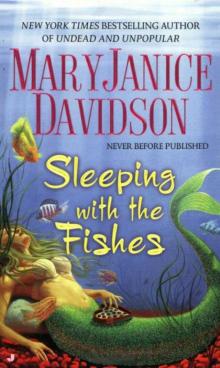 Sleeping With the Fishes
Sleeping With the Fishes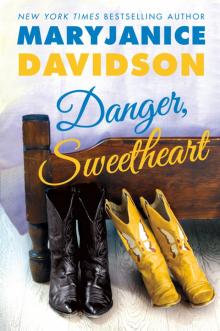 Danger, Sweetheart
Danger, Sweetheart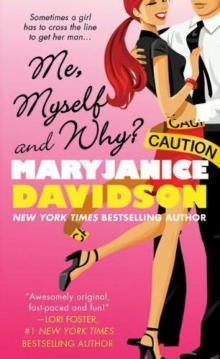 Me, Myself and Why?
Me, Myself and Why?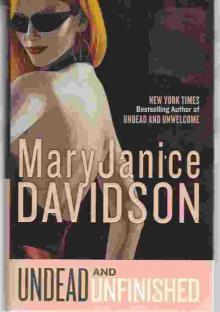 Undead and Unfinished
Undead and Unfinished Deriks Bane
Deriks Bane Thief of Hearts
Thief of Hearts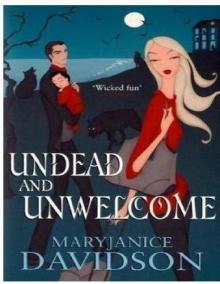 Undead and Unwelcome
Undead and Unwelcome Deja Who
Deja Who Deja New
Deja New Under Cover
Under Cover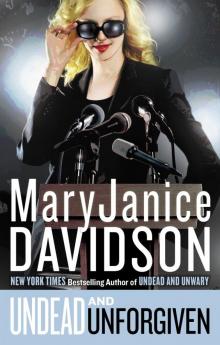 Undead and Unforgiven
Undead and Unforgiven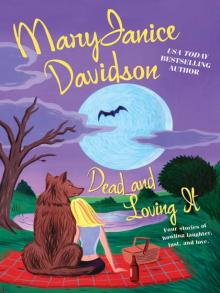 Dead and Loving It
Dead and Loving It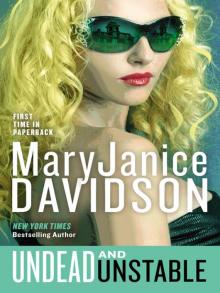 Undead and Unstable
Undead and Unstable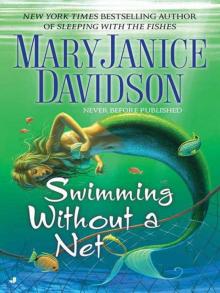 Swimming Without a Net
Swimming Without a Net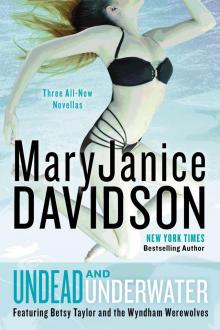 Undead and Underwater
Undead and Underwater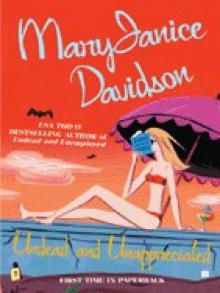 Undead and Unappreciated
Undead and Unappreciated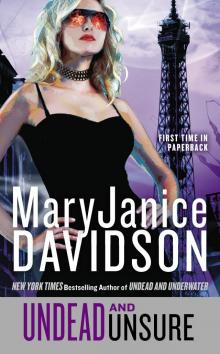 Undead and Unsure
Undead and Unsure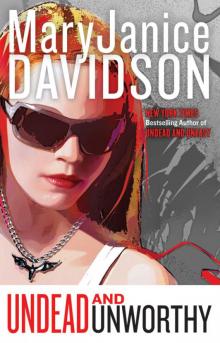 Undead and Unworthy
Undead and Unworthy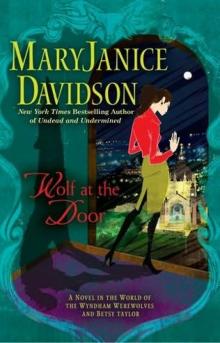 Wolf at the Door
Wolf at the Door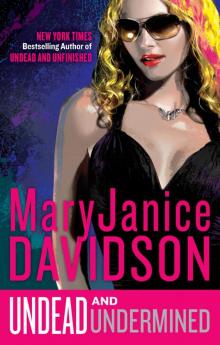 Undead and Undermined
Undead and Undermined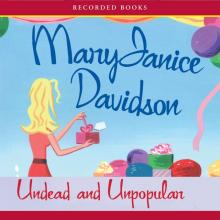 Undead and Unpopular
Undead and Unpopular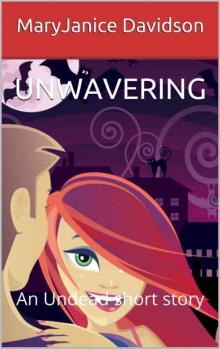 Unwavering
Unwavering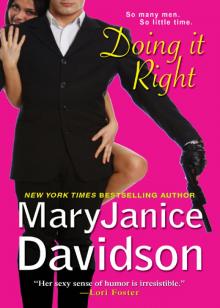 Doing It Right
Doing It Right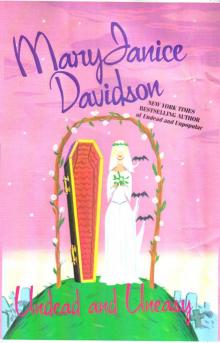 Undead and Uneasy
Undead and Uneasy Drop Dead, Gorgeous!
Drop Dead, Gorgeous!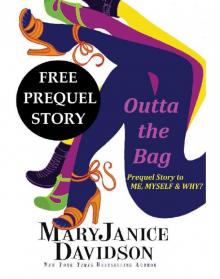 Outta the Bag
Outta the Bag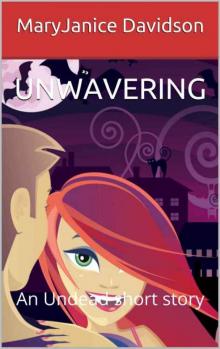 UNWAVERING: An Undead short story (Undead shorts Book 1)
UNWAVERING: An Undead short story (Undead shorts Book 1) Jennifer Scales and the Ancient Furnace
Jennifer Scales and the Ancient Furnace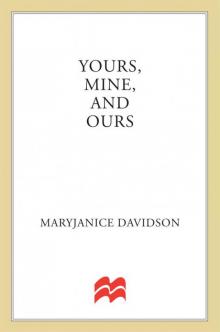 Yours, Mine, and Ours
Yours, Mine, and Ours Under Cover (v1.1)
Under Cover (v1.1)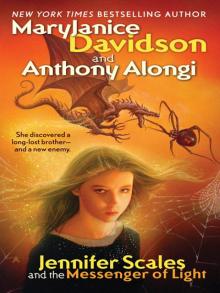 Jennifer Scales and the Messenger of Light
Jennifer Scales and the Messenger of Light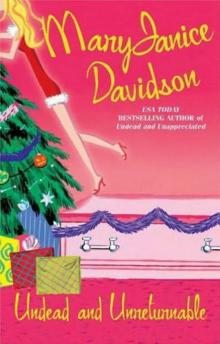 Betsy 4 - Undead and Unreturnable
Betsy 4 - Undead and Unreturnable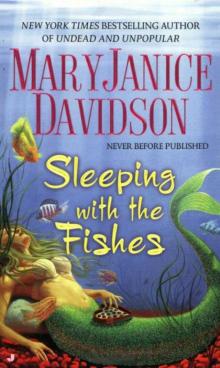 Sleeping with the Fishes (v1.1)
Sleeping with the Fishes (v1.1) betsy short 02 - ureliable
betsy short 02 - ureliable Evangelina
Evangelina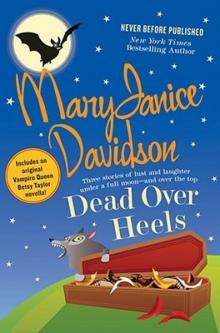 Dead Over Heels (wyndham werewolf)
Dead Over Heels (wyndham werewolf)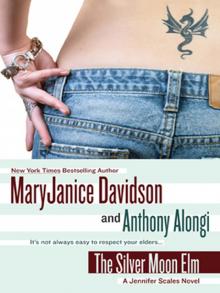 The Silver Moon Elm
The Silver Moon Elm Faeries Gone Wild
Faeries Gone Wild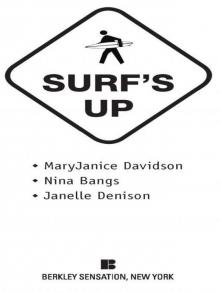 Surf's Up
Surf's Up Seraph of Sorrow
Seraph of Sorrow Demon's Delight
Demon's Delight